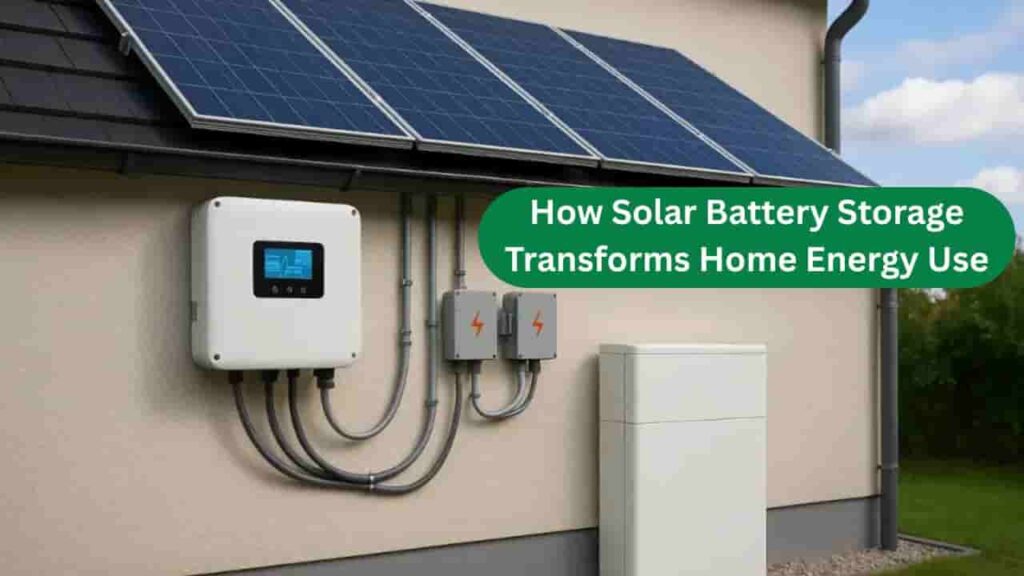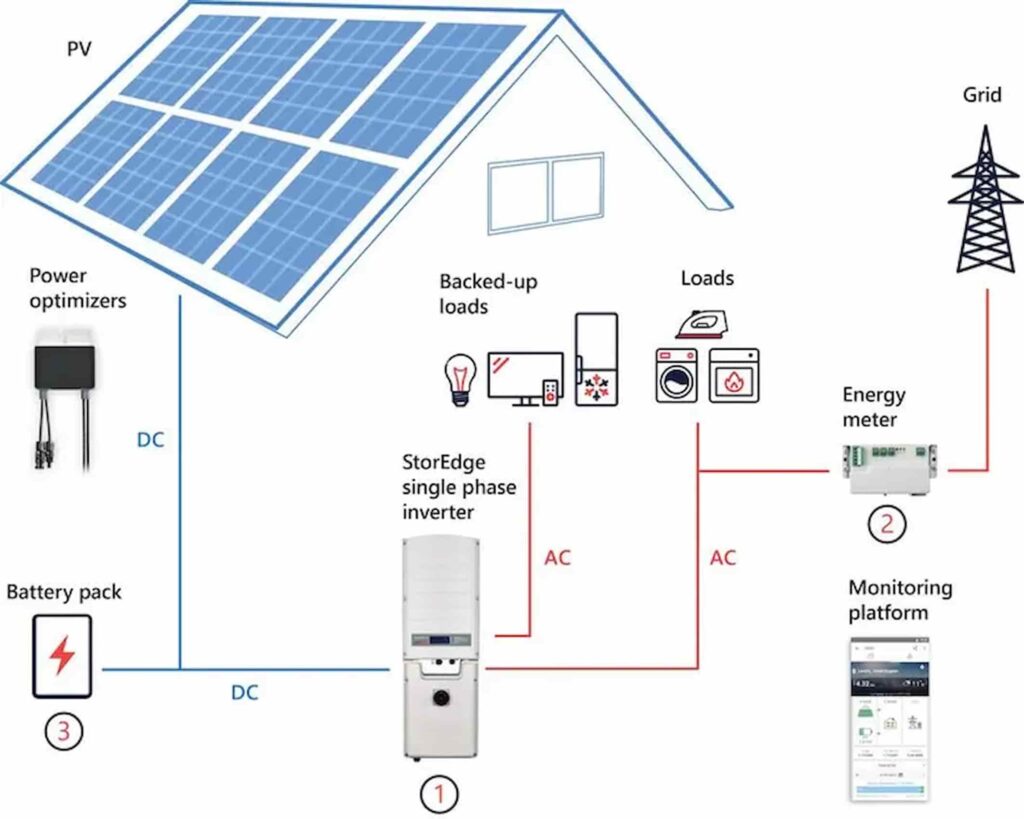How Solar Battery Storage Transforms Home Energy Use
Solar Battery Storage is transforming how UK homeowners manage their energy use and reduce dependence on the grid. As more UK homeowners turn to solar power to reduce energy costs and support sustainability, the addition of solar battery storage has become a game-changer. While solar panels alone help you generate clean electricity, battery storage allows you to store unused solar energy for later use — giving you more control, greater savings, and increased independence from the national grid..
In this article, we’ll explore how solar battery storage works, why it’s becoming increasingly popular across the UK, and how it can transform the way you manage your energy consumption.

1. What Is Solar Battery Storage and How Does It Work?
Solar battery storage systems are designed to capture and store the excess electricity generated by your solar panels during the day. Normally, if your solar panels produce more electricity than your home uses, the surplus energy is sent back to the grid. With a solar battery, that extra power is stored for use at night or during cloudy days when your panels aren’t generating as much electricity.
Here’s how it works in simple terms:
- Daytime: Your solar panels convert sunlight into electricity. The energy powers your home, and any surplus is stored in the battery.
- Nighttime or Low Sunlight: When solar production drops, your home draws electricity from the battery instead of the grid.
This process maximizes your solar system’s efficiency, reduces your reliance on external energy providers, and helps you save more in the long run.

2. Greater Energy Independence
One of the biggest benefits of solar battery storage is energy independence. With a standard solar panel system, you still rely on the grid when the sun isn’t shining. However, with a battery installed, you can store enough power to keep your home running even after sunset or during power outages.
This is particularly beneficial in the UK, where shorter daylight hours and unpredictable weather can limit direct sunlight during certain months. A battery ensures you make the most of the energy your panels produce — allowing you to become more self-sufficient and less affected by fluctuating electricity prices.
Over time, this independence helps homeowners take control of their energy usage and reduces exposure to utility price increases, which have become a major concern in recent years.
3. Maximize Your Energy Savings
Solar battery storage doesn’t just provide convenience — it also helps you save more money. Without a battery, excess energy that your panels produce is typically sent to the grid, earning you a small payment through the Smart Export Guarantee (SEG). However, the rate you’re paid for exported energy (usually between 1p–5p per kWh) is much lower than the cost of buying energy from the grid (around 25p–30p per kWh).
By storing the energy instead, you can use it when your home’s demand is high — for example, during evenings when electricity rates are higher. This means you buy less electricity from your supplier and make better use of the power you already generate.
Many UK households with solar battery storage report a reduction of up to 70–80% in grid energy use, which can translate into hundreds of pounds in annual savings on electricity bills.
4. A Smarter and More Sustainable Way to Live
Solar battery storage aligns perfectly with a modern, sustainable lifestyle. It allows you to optimize renewable energy use, lowering your household’s carbon footprint. By relying more on stored solar power and less on fossil fuel-based grid electricity, you’re directly contributing to the UK’s target of reaching net-zero carbon emissions by 2050.
Additionally, integrating battery storage with a smart energy management system can further improve efficiency. These systems monitor energy usage, solar production, and battery charge levels in real-time — helping you decide when to use, store, or export electricity for maximum savings and sustainability.
As smart home technology continues to advance, battery systems can also be integrated with devices like EV chargers and smart thermostats, creating a connected, energy-efficient home ecosystem.
5. Backup Power During Outages
Although power outages are less frequent in the UK compared to other parts of the world, they can still occur due to extreme weather or grid maintenance. A solar battery storage system acts as a backup power source, keeping essential appliances — such as lighting, refrigerators, and home security systems — running when the grid goes down.
For households working remotely or running home-based businesses, this can be a significant advantage, ensuring minimal disruption during unexpected outages. The ability to maintain power continuity also adds peace of mind and reliability to your energy setup.
6. Government Support and Incentives
While the UK government no longer offers the Feed-in Tariff (FiT), homeowners can still benefit from the Smart Export Guarantee (SEG), which pays you for exporting surplus energy back to the grid. Combining SEG with solar battery storage allows you to sell excess energy strategically — exporting it only when your battery is full or when market rates are higher.
Moreover, installing solar panels and battery storage can make your home eligible for green financing options, such as low-interest energy-efficiency loans and mortgage discounts from certain UK banks. These incentives can help offset installationta costs and make the transition to renewable energy more affordable.
7. Long-Term Investment Value
Solar battery storage is not just a short-term cost-saving solution — it’s a long-term investment in your home and energy future. While installation costs can range from £3,000 to £6,000 depending on capacity and brand, the return on investment (ROI) comes through consistent bill reductions, SEG payments, and increased property value.
Battery systems typically last 10–15 years, and as technology improves, newer batteries offer even higher capacity and faster charging capabilities. Additionally, homes equipped with solar batteries are seen as more future-ready, making them more appealing to eco-conscious buyers.
Conclusion: The Future of Energy is Stored Solar Power
Solar battery storage is transforming how UK homeowners use and manage electricity. By storing your excess solar energy, you gain greater independence, maximize savings, and reduce your environmental impact – all while ensuring your home remains powered day and night.
As energy costs continue to rise and sustainability becomes a national priority, investing in solar battery storage is one of the smartest decisions homeowners can make. It’s not just about saving money – it’s about taking control of your energy future and contributing to a cleaner, greener planet.e – it’s a smart, sustainable investment that pays off for decades.
